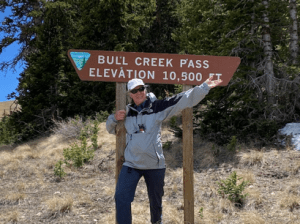The Wallace Stegner Center Environmental Dispute Resolution (EDR) program recognizes that the coronavirus has created a wide range of challenges. We also think it has created an opportunity to reflect on how we operate as individuals and as a society and to be more intentional in our lives. To inspire reflection and intentionality, we are asking our EDR blog readers: What is the coronavirus (which we refer to as Madame C) teaching you?
When I was first asked to share my lessons learned from Madame C (the coronavirus), I was a little nonplussed about what to say. My biggest (and most embarrassing) lesson learned was that I.hate.to.clean. That doesn’t really relate to collaboration, or perhaps it does. There are certain collaborators (broom, vacuum, toilet wand) I don’t really like to work with. And, if I clean while listening to podcasts (i.e., change the process), I don’t mind the task and actually do a good job.
So, I waited for the blog post introducing this Madame C series, I went on a long camping trip (the best way to socially distance), and waited for inspiration to strike. In the meantime, Covid-19 restrictions in Utah have been slowly lifting, resulting in a “new normal,” and the nation and world have exploded in righteous indignation over longstanding racism.
My recent “aha” moments fall into a few categories:
People care about each other, and focusing on our humanness can help foster collaboration. During the many weeks of shelter-in-place (still in effect in many states), we all reached out to long-lost friends and family members, never-met neighbors, previously-underappreciated colleagues with the intent of truly connecting. Asking how people were doing and really wanting to hear the answer. Many of us found socially-distant ways to help those in need with food shopping and rent payments. From what I’ve heard, those connections and conversations ignored politics and worldviews; they focused on what really matters in times of crisis: Are you doing ok? What can I do to help? We established emotional connections with each other.
Get notified when new articles are posted to the EDR blog. Sign up for our email list »
I would venture to guess that each of us would now feel more comfortable having a “difficult conversation” with those friends/family members/neighbors/colleagues, and might approach it from a stance of empathy and problem-solving, rather than confrontation. As a facilitator/mediator of wicked problems, this was my mission and biggest challenge: helping the individuals in a collaboration to see each other as humans with valid perspectives, rather than as enemy combatants.
Thanks to Madame C, we’ve done some of the hard work of breaking through each other’s armors. Or, at least we’ve shown ourselves that it is possible.
We are amazingly creative. The coronavirus has prompted so much creativity: drive-by birthday parties, new ways to entertain kids while working from home, figuring out how to buy things without visiting a busy store, learning to make it yourself, etc.
The virus has also been a shock to the world’s economic and cultural systems, causing many to question whether the old “normal” is worth returning to. The Black Lives Matter protests and emerging community conversations are further challenging leaders to rethink how the world works.
This is a time for new ideas, for setting political and ideological identities aside to focus on what needs to be and can be accomplished to make our world a better place. This is the time for collaboration to ensure that our “new normal” is an improvement over where we were when the coronavirus emerged on the scene.
There are opportunities to improve collaborative process. Many of my collaborative groups were geographically far-flung, and we struggled to find ways to do some of our work remotely to save time and money. Now that everyone has acquainted themselves with online platforms like FaceTime, Zoom, Skype, I’m hopeful that it will be easier to integrate virtual interactions with face-to-face meetings to get the collaborative work done. The challenge will be to know which activities are best suited to which platform (virtual or F2F), and to create opportunities for the human-to-human interaction that is essential for effective problem-solving.
There is a rhythm to things. When I first started my solo practice, I realized there were certain days I really felt like doing what normally seemed like awful tasks (e.g., bookkeeping), and if I did the task then, it took much less time. The same is true for collaborations: there is a rhythm and flow to the group’s work, and it is counter-productive to push at the wrong time. Experience with shelter-in-place and work-from-home has taught many individuals the same lesson. Hopefully the sensitivity to pacing and timing will translate into improved collaborative processes.
These are disruptive and uncomfortable times. These times are also opportunities for learning and change. I see the opportunities for increased and enhanced collaboration, and I am hopeful.
 Michele Straube is the founding director of the EDR program. She retired in 2017 and spends as much time as possible exploring the natural wonders she worked to protect during her career.
Michele Straube is the founding director of the EDR program. She retired in 2017 and spends as much time as possible exploring the natural wonders she worked to protect during her career.
